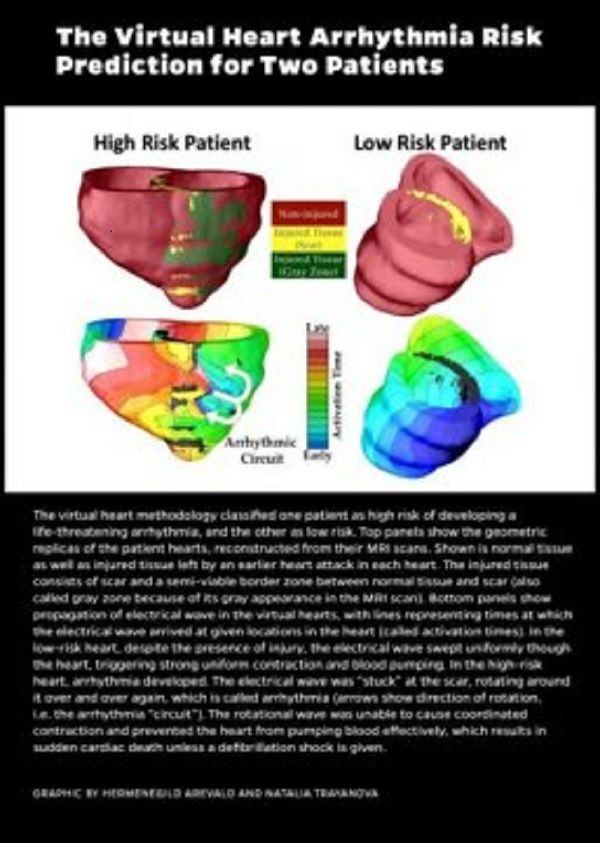Scientists develop virtual heart that accurately predicts risk of sudden cardiac death

Heart attack or stroke remains a top cause of death in many countries, besides cancer. A system developed by scientists at the John Hopkins University could accurately predict the risk of sudden cardiac death.
The researchers developed the Virtual-heart Arrhythma Risk Predictor (VARP), which used magnetic resonance imaging (MRI) scan results that builds patient-specific replicas of damaged hearts. Doctors developed the 3D simulation to help identify patients with irregular heartbeats, or arrhythmias, which are life threatening, reports News.com.au.
Patients who survive heart attacks have distinctive MRI heart scans that show damaged cardiac tissue. If spotted, doctors could determine if a patient could benefit from a defibrillator implant. The implant, which could sense the start of irregular heartbeats, would jolt the heart back to a normal rhythm, although it is an invasive, risky and expensive surgery.
Professor Natalia Trayanova, lead researcher, says that by using VARP, which is non-invasive and offers personalised virtual heart-risk assessment, besides preventing sudden cardiac deaths, would also allow the patient to avoid unnecessary defibrillator implantations.
The research, published in Nature Communications journal, studied the individual health records of 41 patients who tested positive for arrhythmia risk. Those who used VARP were four times more likely to have developed an irregular heartbeat than those tested negatively.





















